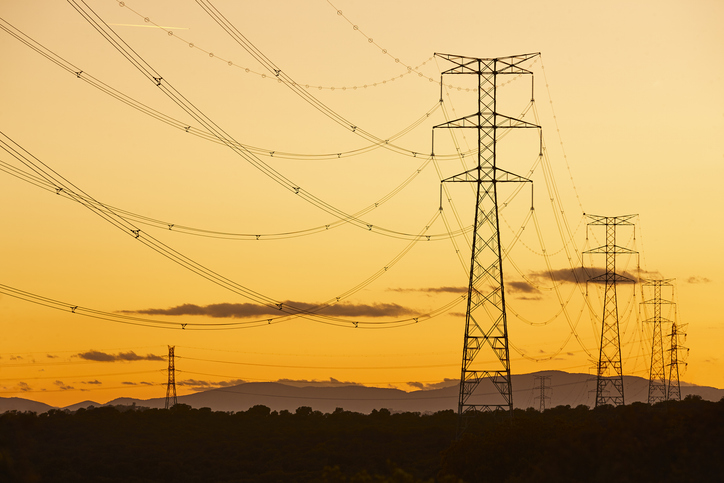From Dialogue to Disruption: Grid Resilience, and the Barcelona Blackout

Posted on 07 May 2025
In our previous article we discussed how OpenWeather joined key stakeholders in Barcelona for a critical discussion focused on the European regulation of climate services. Our goal was to contribute to shaping the future of these vital services in Europe, focusing on the standards, quality, and trust needed for reliable climate information to support a resilient future.
Ironically, this vital dialogue unfolded against the dramatic backdrop of a massive power outage that plunged large parts of Spain and Portugal into darkness. It was a stark, real-time demonstration of the very vulnerabilities we were there to address.
The exact reason for the major power outage affecting Spain (including Barcelona) and Portugal on April 28, 2025, is still under investigation. While a "rare atmospheric phenomenon" was an early suggestion, the investigation now focuses on severe instability in the power grid, which involved strong, rapid changes in the electrical supply. This critical problem is believed to have triggered a series of cascading failures, ultimately disconnecting the Iberian Peninsula from the wider European power network. Other potential factors are being considered, but a definitive cause has not yet been confirmed.
"The blackout was more than a disruption — it was a live case study. It reminded us that behind every weather pattern and data point is a system under pressure. At OpenWeather, we see this as proof that actionable climate intelligence isn’t optional — it’s foundational." — Dmytro Chupryna, Business Development, OpenWeather
The Weather-Grid Nexus: A System Under Pressure
While investigations continue into the precise trigger for the Iberian blackout, the event powerfully highlighted the fundamental link between our energy infrastructure and the weather. Modern electricity grids are marvels of engineering, but they are constantly exposed to the elements, impacting every stage of the power journey.
-
At the generation stage, the source of our power is highly weather-dependent. Solar panel output fluctuates with cloud cover, haze, or smoke; wind turbines require specific wind speeds, shutting down if winds are too low or too high; and hydropower relies heavily on rainfall patterns and snowmelt, making it vulnerable to droughts or extreme flooding. Even thermal plants relying on fossil fuels or nuclear power face challenges, as heatwaves can reduce the availability or effectiveness of cooling water, forcing output reductions.
-
The transmission and distribution network carrying electricity is physically vulnerable. High winds, ice accumulation, and falling debris can damage lines, poles, and towers. Extreme heat causes power lines to sag, reducing capacity and increasing fault risks, while extreme cold can make components brittle. Furthermore, flooding can inundate critical substations, causing catastrophic failures.
-
Weather directly drives demand. Extreme heatwaves lead to soaring demand for air conditioning, while severe cold snaps drive up heating needs. These demand spikes put immense pressure on the entire system, increasing the risk of overloads and blackouts, often precisely when reliable power is most needed. Reports indicate that severe weather is responsible for a significant majority of power outages globally, a trend expected to worsen as climate change increases the frequency and intensity of extreme events. The Barcelona incident, therefore, served as an urgent reminder of the need for robust energy systems.
Lessons from Barcelona: Dialogue Meets Reality
The outage powerfully underscored these points, highlighting that resilience isn't just theoretical. It requires practical, reliable systems – both in climate information and energy delivery. The key takeaways and necessary actions crystallised during the dialogue, now viewed through the lens of the blackout experience, include:
- Establishing clear criteria for what constitutes high-quality, trustworthy climate services.
- Ensuring user needs are central to service design, delivery, and validation processes.
- Promoting compatible data formats and standards to facilitate easier integration and collaboration.
- Developingpractical assurance and certification methods that build market confidence without stifling innovation.
- Maintaining open and continuous communication between service providers, users, standards bodies, and regulators.
OpenWeather's Commitment: Data for Energy Resilience
To help the energy industry tackle growing climate-related weather challenges, OpenWeather offers a range of specialised services. As weather becomes more unpredictable, precise data is vital for reliable energy operations.
The OpenWeather Wind and Energy Prediction Service, provides crucial forecasts for both solar and wind generation to manage these variable sources. Furthermore, access to extensive Historical Data , including the OpenWeather History Bulk enables energy companies to better anticipate extreme weather events, enhance grid stability, and make smarter long-term investments to build resilience against ongoing climate risks.
Integrating Intelligence for a Stable Future
The Barcelona blackout during a climate summit wasn't just irony; it was a critical lesson in interconnectedness.
Weather drives both climate adaptation and energy security. Mastering weather intelligence is therefore essential for strengthening climate services and our power grids. OpenWeather is committed to delivering the insights needed to navigate these challenges and build a resilient world.





